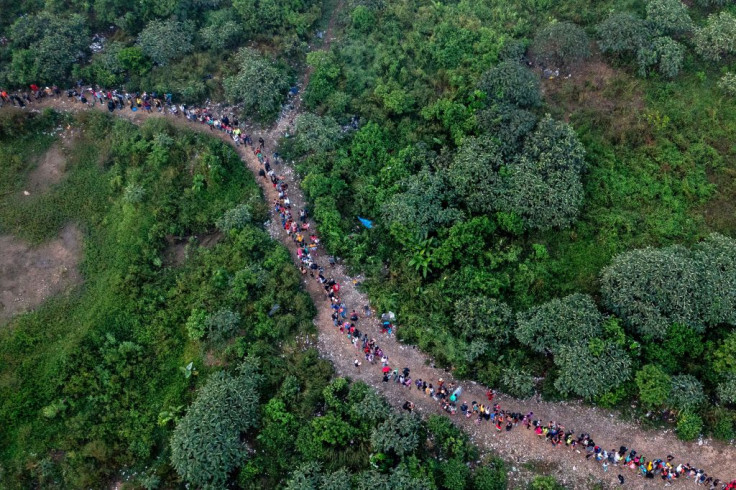
A new report by the International Refugee Assistance Project (IRAP) reveals the growing collision between climate-driven displacement and tightening U.S. immigration policy. Along the U.S.-Mexico border, migrants forced from their homes by droughts, floods, environmental corruption, and hurricanes are now stuck in limbo—stranded by a system that offers no protection for those displaced by environmental catastrophe.
"Climate change is a significant driver of displacement," the report notes, "yet current legal frameworks fail to protect people fleeing climate-related disasters." In early 2025, IRAP conducted interviews with 26 asylum seekers in Ciudad Juárez and El Paso, documenting the stories of people who fled collapsing ecosystems only to find the U.S. border firmly shut.
The numbers are staggering: 65% of those interviewed said climate damage played a role in their decision to leave home. Nearly 90% reported experiencing extreme weather on the way north—heatwaves, flash floods, biting cold—on top of the physical toll of migration.
The stories included in the report put a human face on the statistics. Valentina, a 21-year-old non-binary Indigenous activist from Chiapas, endured hurricanes, landslides, and government threats after protesting environmental destruction in her community. Ada, a mother from Honduras, watched her family's store collapse under gang extortion and relentless floods. Marta, a Wayuu farmer from Venezuela, lost her livestock to drought and her son nearly to dehydration in the Darién Gap.
These aren't isolated tragedies. "Environmental disasters often exacerbated other vulnerabilities," IRAP writes—deepening poverty, triggering violence, and worsening health crises. And for those who manage to reach the border, U.S. policies often make things worse.
With the CBP One app discontinued and "Remain in Mexico" back in effect, the asylum process has grown increasingly hostile, pushing people into dangerous and unregulated migration routes. "These policies block displaced people from protection and force people...into increasingly dangerous migration routes," the report warns.
At the same time, the U.S. has stepped back from international climate commitments—gutting emissions standards, walking away from global climate agreements, and cutting aid programs.
And while many flee, others are left behind to suffer the long-term health impacts of environmental degradation. In Mexico, some Indigenous communities are experiencing alarming rates of chronic kidney disease. In regions like Jalisco, polluted rivers and pesticide runoff have been linked to spikes in renal dysfunction—especially in villages with little state oversight or access to medical care. These conditions, too, go largely unaddressed.
"In absence of U.S. leadership, the international community must advance global policy solutions that address the compounding challenges of mass displacement and climate disasters," the report suggests.
© 2025 Latin Times. All rights reserved. Do not reproduce without permission.





